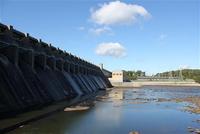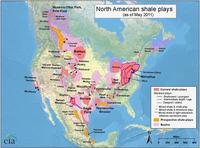-
Protecting drinking water systems from deliberate contamination

The importance of water and of water infrastructures to human health and to the running of the economy makes water systems likely targets for terrorism and CBRN (chemical, biological, and radionuclide) contamination. Reducing the vulnerability of drinking water systems to deliberate attacks is one of the major security challenges. An international project has developed a response program for rapidly restoring the use of drinking water networks following a deliberate contamination event.
-
-
Earthquake-proofing precast buildings
Precast or ready-made building structures offer a number of advantages when compared to more traditional construction techniques in terms of time and cost savings. The vulnerability of joints and connections between assembled precast elements, however, is widely recognized as a potential safety issue, especially in earthquake-prone areas. An EU-funded project has set out to develop new procedures and guidelines for designing precast structure joints and connections that can stand up to seismic forces.
-
-
U.S. tax code has minimal effect on CO2, other greenhouse gas emissions
Current federal tax provisions have minimal net effect on greenhouse gas emissions, according to a new report from the National Research Council. The report found that several existing tax subsidies have unexpected effects, and others yield little reduction in greenhouse gas emissions per dollar of revenue loss.
-
-
Cuomo: New York infrastructure must be made more resilient in face of climate challenge
New York governor Andrew Cuomo says global warming l is a serious threat and that all levels of government must work together to design a more resilient infrastructure to deal with the changing weather.
-
-
Former Pentagon No. 2 suspected of being source of Stuxnet leaks
The Justice Department has informed Gen. (Ret.) James E. “Hoss” Cartwright that he is the target of an investigation into the leaking of a secret U.S.-Israeli cyber campaign to slow down Iran nuclear weapons program. The four-star Marine Corps general served as deputy chairman of the Joint Chiefs of Staff and was part of President Obama’s inner circle on many important national security issues before retiring in 2011.
-
-
Renewables to surpass gas by 2016 in the global power mix: IEA

An International Energy Agency (IEA) report says power generation from hydro, wind, solar, and other renewable sources worldwide will exceed that from gas and be twice that from nuclear by 2016.
-
-
Improved water purification technology reduces logistics burden
The logistics burden of supplying water to deployed troops is comparable to that of fuel and the economic cost is high. The Department of Defense (DoD) currently relies on a number of water desalination systems to produce clean water from local sources, but all of these systems have size, weight, and power (SWaP) constraints that affect their suitability for some missions. DARPA initiated the Materials with Novel Transport Properties (MANTRA) program to improve water desalination technologies and reduce their SWaP requirements.
-
-
Maryland shorelines facing sea level rise threatening state’s infrastructure: report
Maryland has 3,100 miles of tidal shoreline and low-lying rural and urban lands that will be impacted. A new report on sea level rise recommends that the State of Maryland should plan for a rise in sea level of as much as two feet by 2050. Governor Martin O’Malley said that “[we must] ensure that we have a sound understanding of our vulnerability and are making informed decisions about how best to protect our land, infrastructure, and most importantly, the citizens of Maryland.”
-
-
Transporting diluted bitumen through pipelines does not increase likelihood of release
Scientific study has found that the thick Canadian crude oil, known asdiluted bitumen, whichwould be shipped to the U.S. through the Keystone XL pipleline is no more dangerous than transporting other types of crude oil.
-
-
Environmentalists begin a summer of protest against Keystone project
A coalition of environmentalist groups calling itself “fearless summer” launched what it said would be a series of protests against the Keystone XLL pipeline project. Near the city of Seminole, Oklahoma, members of the group shackled themselves to industrial equipment and disruoted work at Keystone-related construction site. Ten were arrested.
-
-
Policy, regulatory issues hobble hydropower as wind-power backup

Theoretically, hydropower can step in when wind turbines go still, but barriers to this non-polluting resource serving as a backup are largely policy- and regulation-based, according to researchers.
-
-
Methane, ethane, and propane found in water wells near shale gas sites

Homeowners living within one kilometer of shale gas wells appear to be at higher risk of having their drinking water contaminated by stray gases, according to a new study. Scientists analyzed 141 drinking water samples from private water wells across northeastern Pennsylvania’s gas-rich Marcellus shale basin. Their study documented not only higher methane concentrations in drinking water within a kilometer of shale gas drilling — which past studies have shown — but higher ethane and propane concentrations as well.
-
-
Discoveries in nanotechnology to make clean, fresh drinking water more plentiful

The University of Chicago and Ben-Gurion University of the Negev will begin funding a series of ambitious research collaborations that apply the latest discoveries in nanotechnology to create new materials and processes for making clean, fresh drinking water more plentiful and less expensive by 2020.
-
-
Planned Calif. building demolition to provide information about nearby fault
When California State University, East Bay (CSUEB) demolishes its seismically unsafe Warren Hall this summer on its Hayward campus, the landmark building’s implosion will produce energy similar to a small earthquake which can be used to study and map the nearby Hayward Fault. In cooperation with the university, the U.S. Geological Survey will observe and record the mid-August implosion on hundreds of seismographs temporarily set out in a roughly one-mile radius from Warren Hall.
-
-
Registration opens for NIST Cybersecurity Framework Workshop

Executive Order 13636, Improving Critical Infrastructure Cybersecurity, gave NIST the responsibility to work with industry to develop a voluntary “framework” — incorporating existing standards, guidelines, and best practices — that institutions could use to reduce the risk of cyber attacks. The National Institute of Standards and Technology (NIST) has opened registration for its Third Cybersecurity Framework Workshop, to be held 10-12 July 2013, in San Diego, California.
-
More headlines
The long view
Helping Strengthen America’s Critical Infrastructure
Everyday life depends on a robust infrastructure network that provides access to running water, communications technology and electricity, among other basic necessities. The experts who keep our national infrastructure secure and resilient also need a strong network to share their knowledge and train the next generation of professionals capable of solving complex infrastructure challenges.
AI and the Future of the U.S. Electric Grid
Despite its age, the U.S. electric grid remains one of the great workhorses of modern life. Whether it can maintain that performance over the next few years may determine how well the U.S. competes in an AI-driven world.
Using Liquid Air for Grid-Scale Energy Storage
New research finds liquid air energy storage could be the lowest-cost option for ensuring a continuous power supply on a future grid dominated by carbon-free but intermittent sources of electricity.
Enhanced Geothermal Systems: A Promising Source of Round-the-Clock Energy
With its capacity to provide 24/7 power, many are warming up to the prospect of geothermal energy. Scientists are currently working to advance human-made reservoirs in Earth’s deep subsurface to stimulate the activity that exists within natural geothermal systems.
Experts Discuss Geothermal Potential
Geothermal energy harnesses the heat from within Earth—the term comes from the Greek words geo (earth) and therme (heat). It is an energy source that has the potential to power all our energy needs for billions of years.
